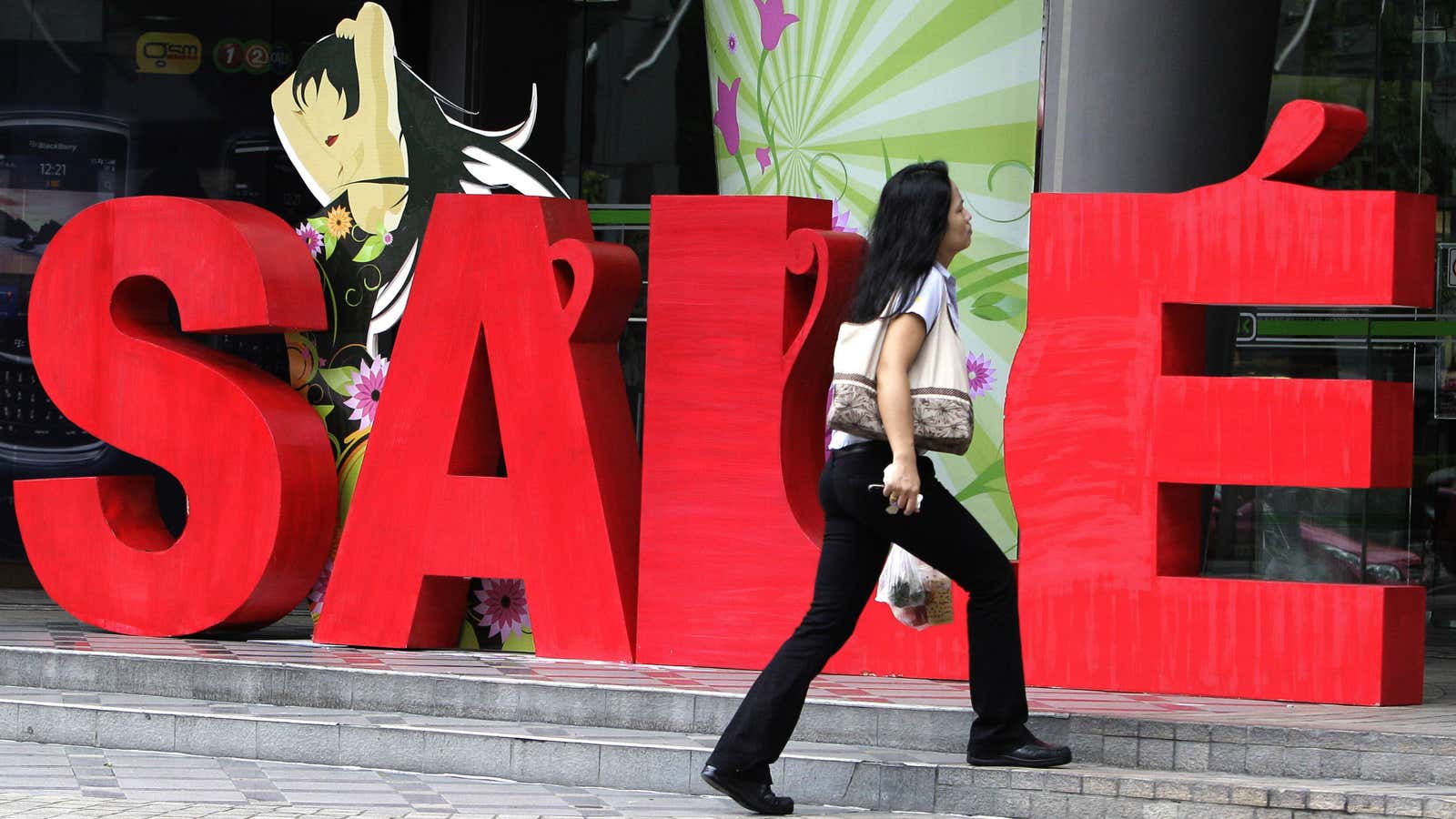Thailand’s central bank voted unanimously to cut its 2.75% base rate by a quarter of a percentage point on Wednesday in an attempt to stem a sharp rise in the baht. While its economic situation is unique, Thailand is joining other Asian countries in setting a currency-devaluing precedent that may leave other emerging economies with little choice but to follow suit.
Quantitative easing in the US and austerity in Europe has sent foreign investors to Asia seeking better returns, pumping up the value of Thailand’s baht, which in April hit its strongest level against the dollar since the 1997 Asian financial crisis.
That’s causing big problems for Thailand. The baht’s level has drawn a howl of protest from exporters worried that their goods will become too expensive, especially since Japanese President Shinzo Abe’s attempts to devalue the yen are already making things difficult for his Asian neighbors. Last week the Thai government cut its export growth forecast from 11% to 7.6% for 2013 and Thailand’s finance minister has been publicly piling pressure on the bank’s central governor to take action—something he has resisted since October last year because of concerns a rate cut could spark an equities bubble.
The Bank of Thailand is also considering additional controls, including fees on capital gains made by foreign bond holders and minimum holding periods for foreign purchasers, to discourage the flow of foreign money coming in to Thailand. It ought not wait too long: If it’s successful, Abenomics is expected to create a surge of Japanese investment in Southeast Asia. Frederic Neumann, chief Asian economist at HSBC, told the Financial Times last month that the “train has already left Tokyo station.” Its arrival is only a matter of time—perhaps only a few quarters.
If Thailand succeeds in devaluing the baht (not guaranteed based on its past record), the foreign capital that has been flowing into the kingdom may go elsewhere–the Philippines, for example, which has been fighting a housing bubble and so far avoided capital controls. Japan’s currency devaluation has already inflicted major damage on South Korea. And let’s not forget China, which has artificially devalued its currency for so long that nobody even bothers to complain about it any more.
Koichi Hamada, an economic adviser to Abe, told South Korea in a visit on Wednesday that it shouldn’t blame the weakened yen for its difficulties.
“Each country can take care of itself through its own monetary policy,” he said. If that attitude prevails, Thailand certainly won’t be the last country in the region to try for a weaker currency.
